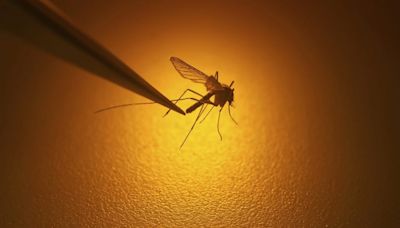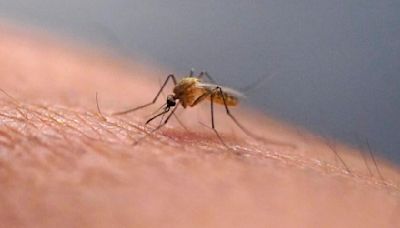Search results
Apr 23, 2024 · Most people with dengue have mild or no symptoms and will get better in 1–2 weeks. Rarely, dengue can be severe and lead to death. If symptoms occur, they usually begin 4–10 days after infection and last for 2–7 days. Symptoms may include: high fever (40°C/104°F) severe headache. pain behind the eyes.
Apr 23, 2024 · Dengue is a mosquito-borne viral infection that causes a severe flu-like illness and sometimes a potentially lethal complication called severe dengue. The incidence of dengue has increased 30-fold over the last 50 years. Up to 50–100 million infections are now estimated to occur annually in over 100 endemic countries, putting almost 4 billion people at risk.
May 15, 2024 · Dengue and severe dengue. Dengue is a mosquito-borne viral infection that is common in warm, tropical climates. Infection is caused by any one of four closely related dengue viruses (called serotypes) and these can lead to a wide spectrum of symptoms, including some which are extremely mild (unnoticeable) to those that may require medical ...
May 30, 2024 · As of 30 April 2024, over 7.6 million dengue cases have been reported to WHO in 2024, including 3.4 million confirmed cases, over 16 000 severe cases, and over 3000 deaths. While a substantial increase in dengue cases has been reported globally in the last five years, this increase has been particularly pronounced in the Region of the Americas, where the number of cases has already exceeded ...
Jun 2, 2022 · Dengue - Questions and Answers. 2 June 2022. Dengue is a mosquito-borne viral infection causing a severe flu-like illness and, sometimes causing a potentially lethal complication called severe dengue. The incidence of dengue has increased 30-fold over the last 50 years. Up to 50-100 million infections are now estimated to occur annually in over ...
Apr 21, 2009 · Since the second edition of Dengue haemorrhagic fever: diagnosis, treatment, prevention and control was published by the World Health Organization (WHO) in 1997, the magnitude of the dengue problem has increased dramatically and has extended geographically to many previously unaffected areas. It was then, and remains today, the most important ...
May 10, 2024 · TAK-003 is the second dengue vaccine to be licensed. TAK-003 is a live-attenuated vaccine containing weakened versions of dengue virus serotypes 1, 2, 3 and 4 developed by Takeda. TAK-003 uses the DENV2 strain as the genomic backbone. The vaccine schedule is a 2-dose series three months apart, given to specific age groups and in specific ...
Dec 21, 2023 · The global incidence of dengue has markedly increased over the past two decades, posing a substantial public health challenge. From 2000 to 2019, the World Health Organization (WHO) documented a ten-fold surge in reported cases worldwide increasing from 500 000 to 5.2 million. The year 2019 marked an unprecedented peak, with reported instances ...
Response. Dengue is a mosquito-borne viral infection causing a severe flu-like illness and sometimes causing a potentially lethal complication known as severe dengue. The Western Pacific Region continues to face a high burden of mosquito-borne arboviral diseases, particularly dengue. These diseases cause significant morbidity and mortality.
Preventive and vector control interventions aim to reduce dengue transmission, thereby decreasing the incidence of the infection and preventing outbreaks of the disease. Unlike other mosquitoes, Aedes aegypti is a daytime feeder; its peak biting periods are early in the morning and before dusk in the evening.



